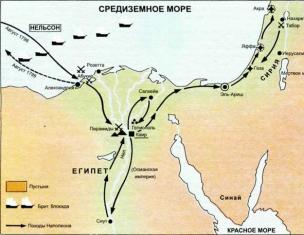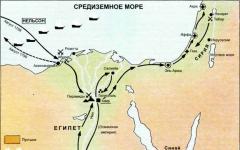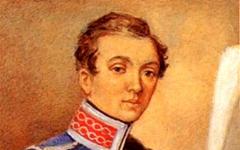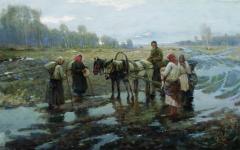World-famous polar explorer - Artur Nikolaevich Chilingarov - oceanographer, Hero of the USSR and Hero of the Russian Federation.
Arthur Izvestny Nikolaevich Chilingarov was born in 1939 in Leningrad. The father is Armenian, and the mother is Russian. They were not married, the father had another family, but he recognized his illegitimate son and gave his last name, which was somewhat Russified and originally sounded Chilingaryan. As a two-year-old child, he survived the siege. They (mother, grandmother and baby) lived near the military registration and enlistment office, which was subject to constant shelling, during which the family went down to the basement, and the grandmother took the icon and prayed. My father went through the war, returned alive from the front, held an important position in the urban planning of Leningrad, and died in 1954. At the age of 15, Arthur went to work at the shipbuilding plant named after. S. Ordzhonikidze (now JSC Baltic Plant) and successfully mastered working specialties.
In 1958, Chilingarov entered the Higher Maritime School named after. Admiral Makarov and chose a specialization - oceanology. Many years later, his classmates remember him as a funny and very positive young man. He had an incredibly large briefcase, for the reason that he could carry nautical maps in it without folding it. He studied with interest and enthusiasm, falling more and more in love with his profession with each semester and course. In 1963, Arthur Chilingarov, a young specialist, was sent to work on Tiksi Island as a hydrological engineer to study the oceanic atmosphere of the Arctic Ocean. Chilingarov himself jokes that there he was firmly frozen to the ice floe, which he could not part with to this day.
1965, he is elected first secretary of the Bulunsky Republic Committee of the Komsomol. He was the only non-party first secretary in the history of the Komsomol of Yakutia and the entire USSR, but the funny thing is that he was a secret believer. Already at this time, a beard was a constant decoration of his face, which irritated the party leadership. Chilingarov was forced to shave it off; they said that a Komsomol member with a beard like a priest’s was not Soviet-style.
From 1969 to 1974, Artur Chilingarov headed the northern stations on drifting ice “North Pole-19”, “North Pole-22”. From 1974 to 1979, he was the head of hydrometeorology of the Amderma territorial administration. He managed to develop a unique technique for unloading and loading cargo onto the fixed ice (fast ice) of the island. Yamal, for which he was awarded the state. USSR Prize. From 1986 to 1992 - Chilingarov, head of the department for all affairs and research of the circumpolar regions.
In 1985, he led an expedition to rescue the scientific vessel "Mikhail Somov" trapped in the ice of the Arctic Ocean and its crew. The task was completed flawlessly. In 1987 A.N. Chilingarov, together with a team of polar explorers, sets off to the North Pole on the powerful nuclear icebreaker Sibir. An interesting fact is that this ship was built at the shipyard where Artur Chilingarov began his career. In 1989-90, he and a team of like-minded people organized the international expedition “Transantarctic,” which included polar scientists from different parts of the globe.
In August 1991, he led an expedition to Antarctica in the depths of winter on an IL-76 aircraft to evacuate 150 polar explorers from the Molodezhnaya station. In January 2002 A.N. Chilingarov managed to reach the South Pole on a single-engine plane and return unharmed. In 2003, the famous polar explorer organized the drifting scientific station "North Pole-32"
In 2007 he directed an air flight of two helicopters on an unusual route. The expedition began at the southernmost point of the continent - South America, and the final goal was Antarctica, a round-trip distance of 9,000 km. In 2014, Artur Chilingarov descended in a submersible to the very bottom of the Arctic Ocean, to a depth of 4300 km.
Chilingarov is a great joker and merry fellow. A journalist once asked him a question: “What, really, when you went to the bottom of the Arctic Ocean, did you write a suicide note to your family?” The polar explorer laughed and corrected: “Not a note, but a one and a half page will, he listed which of his friends and how much money he owed me.” Then, seeing the journalist’s surprise, he said that he was joking.
Chilingarov has so many awards that a record number of them will soon be included in the Guinness Book. He is an honorary member of various social, geographical and scientific societies. Wherever fate takes and throws Chilingarov, no matter what power structures he finds himself in, sooner or later he is back in the Arctic on an ice floe.
1986 Hero of the Soviet Union - for the operation to free the ship "Mikhail Somov" from the Arctic ice and rescue the crew.
2007 Order “For Merit to the Fatherland” III p. - for the famous long air flight to the South Pole.
2008 Hero of the Russian Federation - for courage shown during the exploration of the ocean depths.
2014 Order of Merit for the Fatherland, IV degree - for many years of work in extreme conditions, the development of domestic science.
Arthur Chilingarov is a great adventurer, dreamer and romantic, he conquers the northern latitudes, his name is included in textbooks and geographical encyclopedias. A lifetime bust was erected to Arthur Chilingarov in Victory Park in St. Petersburg. He was skeptical about such an undertaking, but the monument was erected, and the polar explorer had no choice but to come to terms with it. The famous polar explorer asked visitors to the park only one thing - not to lay flowers, since he still has many different plans for the future. One of Chilingarov’s many ideas is to dive to the bottom of the famous Mariinskaya Trench. He is like that, if he plans it, he will definitely do it.
He has a wonderful family. Beautiful wife - Tatyana Alexandrovna. Daughter Ksenia runs a company that produces warm and comfortable clothing to help polar explorers and people working in extreme conditions. The son is a businessman, born on Novaya Zemlya. Loves football and gambling. He does two things periodically - he shaves off his gorgeous beard and fights, albeit unsuccessfully, with a bad habit - smoking. He is considered the most mustachioed polar explorer. He is a great romantic, a lucky man and a man for whom fortune always smiles.
Artur Chilingarov was born on September 25, 1939 in St. Petersburg. Two years after his birth, the family found themselves in a besieged city. As a teenager, he moved with his family to North Ossetia, where he lived for a long time in Vladikavkaz. In 1963 he graduated from the State Maritime Academy named after Admiral Sergei Makarov with a degree in oceanology.
Chilingarov began his career as a fitter at the Baltic Shipyard. In 1963, he worked at the Arctic Research Observatory in the village of Tiksi as a hydrological engineer; studied the Arctic Ocean and the oceanic atmosphere.
In 1969, he led the high-latitude scientific expedition “North-21”. The results obtained made it possible to substantiate the possibility of year-round use of the Northern Sea Route along its entire length. He was the head of the drifting station "SP-19", deputy head of the station "SP-22". Since 1971 - head of the Bellingshausen Antarctic station of the 17th Soviet Antarctic expedition.
From 1986 to 1992, Artur Chilingarov worked as Deputy Chairman of the State Committee of the Union of Soviet Socialist Republics for Hydrometeorology and Environmental Control, Head of the Main Directorate for Arctic, Antarctic and World Ocean Affairs, and also led a scientific expedition on the nuclear-powered ship "Siberia" to the North Pole and transcontinental flight "IL-76" to Antarctica.
Artur Nikolaevich, in 1999, led the ultra-long flight of the Mi-26 multi-purpose helicopter, which demonstrated the capabilities of operating rotorcraft in the central regions of the Arctic Ocean.
Through the efforts of Chilingarov, the long-term drifting station “North Pole-32” was opened in 2003, the first after the curtailment of the Arctic research program in 1991.
In 2007 he made two notable polar expeditions. Together with the head of the FSB, Nikolai Patrushev, he flew to the North Pole in a helicopter. In August 2007, on the Mir submersible, together with seven other researchers, he sank to the bottom of the Arctic Ocean near the North Pole, where he and his team planted the Russian flag on the ocean floor. In 2008, at the general meeting of the Russian Academy of Sciences, he was elected a corresponding member of the Russian Academy of Sciences.
In October 2013, he lit the Olympic flame at the North Pole as part of the Olympic torch relay of the Winter Games in Sochi. In the same month, he became an advisor-mentor to the governor of the Tula region, Vladimir Gruzdev, and also headed the subcommittee on Arctic development.
In the 2016 parliamentary elections, Chilingarov headed the United Russia party list for the Krasnoyarsk Territory and the Republic of Tuva. Member of the International Affairs Committee. Member of the Supreme Council of the United Russia party. Start date of authority: September 18, 2016.
During the 2018 presidential elections, he was a member of the initiative group that nominated the candidacy of Russian President Vladimir Putin.
In the Catherine Hall of the Kremlin November 21, 2019 A solemn ceremony of presenting state awards of Russia took place. For his great contribution to the strengthening of Russian statehood, the development of parliamentarism and many years of conscientious work, the President of the Russian Federation Vladimir Putin awarded Artur Nikolaevich Chilingarov the Order of Merit for the Fatherland, II degree.
Awards and Achievements of Artur Chilingarov
Russian Federation:
Hero of the Russian Federation - for courage and heroism shown in extreme conditions, and the successful conduct of the High-Latitude Arctic Deep-Sea Expedition 2008
Hero of the Soviet Union - for exemplary performance of the task of freeing the research vessel "Mikhail Somov" from the ice of the Antarctic in polar winter conditions, skillful management of ships during rescue operations and during the period of drift, and the courage and heroism shown at the same time
Order of Merit for the Fatherland, II degree (September 9, 2019) - for his great contribution to the strengthening of Russian statehood, the development of parliamentarism and many years of conscientious work
Order of Merit for the Fatherland, III degree - for active participation in legislative activities and successful conduct of the High-Latitude Air Expedition to the South Pole
Order of Merit for the Fatherland, IV degree - for active legislative activity and many years of conscientious work
Order of Lenin
Order of the Red Banner of Labor
Order of the Badge of Honor
USSR State Prize - for developing a methodology for loading and unloading operations on the Yamal fast ice
Certificate of Honor from the Government of the Russian Federation - for great personal contribution to the development of Russian legislation
Certificate of Honor from the President of the Russian Federation - for many years of fruitful legislative activity
Gratitude of the President of the Russian Federation - for his great contribution to the preparation and holding of the World Conference on Climate Change
Gratitude of the President of the Russian Federation - for active participation in the preparation and holding of the celebration of the 850th anniversary of the founding of Moscow
Gratitude from the Government of the Russian Federation - for services in lawmaking and active participation in the development of parliamentarism in the Russian Federation
Order of the Polar Star
Order "For Naval Merit" - for great contribution to the study, development and use of the World Ocean
Honored Meteorologist of the Russian Federation - for services in the field of meteorology
Order of St. Sergius of Radonezh, 1st degree, Russian Orthodox Church
Order of the Holy Blessed Prince Daniel of Moscow, II degree - in recognition of his works, for active participation in the development of church life and in connection with the 70th anniversary of his birth, Russian Orthodox Church
Badge "Honorary Polar Explorer"
Big gold medal of the Russian Geographical Society - for outstanding contribution to research of the Arctic and Antarctic
Medal "Symbol of Science"
National award "Russian of the Year" - for supporting the geopolitical prestige of Russia
insignia “For Services to Moscow” - for a great personal contribution to the socio-economic development of the capital, many years of fruitful activity for the benefit of the city and Muscovites
Honorary diploma of the Legislative Assembly of St. Petersburg - for outstanding personal contribution to the development of parliamentarism, many years of successful professional activity and in connection with the 70th anniversary of his birth
Laureate of the People's Friendship Prize "White Cranes of Russia" in the category "Pride of Russia", with the presentation of the order of the same name
Other countries:
Anania Shirakatsi Medal - for contribution to the strengthening and development of Armenian-Russian friendship
Order of Bernardo O'Higgins, Chile
Order of St. Mesrop Mashtots - in connection with the 17th anniversary of the proclamation of independence of the Republic of Armenia
Order of Friendship - for his great contribution to strengthening relations of friendship and cooperation between peoples, active assistance in the process of development of democracy and parliamentarism in the Republic of South Ossetia and providing practical assistance to its citizens in the exercise of voting rights
Artur Chilingarov is a Soviet and Russian explorer of the Arctic and Antarctic, a major Russian oceanologist, statesman and politician, Hero of the Soviet Union and Hero of the Russian Federation, Doctor of Geographical Sciences, Corresponding Member of the Russian Academy of Sciences, President of the State Polar Academy.
After graduating from school, he entered the Leningrad Higher Marine Engineering School. Admiral Makarov to the Arctic Faculty. After graduation, he received a specialty as an oceanologist.
For a long time he worked as a researcher at the Arctic and Antarctic Research Institute and as a hydrological engineer at a laboratory in Tiksi.
He is married and has two children - a son and a daughter.

In 1965, Chilingarov was elected first secretary of the Bulun district committee of the Komsomol.
In 1969, he headed the drifting station "North Pole-19", and in 1971 took over the leadership of the staff of the "Bellingshausen" station of the 17th Soviet Antarctic Expedition.
In 1973, he organized the drifting station "North Pole-22" on the icebreaker "Vladivostok".

In 1979, Chilingarov began working in the system of the USSR State Committee for Hydrometeorology. For the development of a methodology for using fast ice for loading and unloading operations (participation in the scientific substantiation of the first experimental voyages in the winter-spring period along the Northern Sea Route) he was awarded the USSR State Prize.
.jpg)
The media have repeatedly talked about courage. He personally participated in the rescue of the research ship "Mikhail Somov". In 1985, Chilingarov led a rescue expedition to him on the icebreaker Vladivostok. For his dedication he was awarded the title of Hero of the Soviet Union.
In 1986, Chilingarov participated in the liquidation of the consequences of the accident that occurred at the Chernobyl nuclear power plant.
In 1987, he led the voyage of the nuclear icebreaker Sibir, which reached the North Pole in free navigation.
In 1993, Chilingarov became a candidate for deputy of the State Duma of the Russian Federation.

“I devoted my whole life to the North and suddenly realized that my whole life’s work was crumbling before my eyes... It was possible to do something only through the power structures,” Chilingarov explained his coming to parliament.
In December 1995, Chilingarov was re-elected to the State Duma. He was nominated by the Ivan Rybkin Bloc.
In 1998, Chilingarov joined the political council of the Fatherland movement created by Moscow Mayor Yuri Luzhkov.
In 1999, he led the ultra-long flight of the Mi-26 multi-purpose helicopter, which demonstrated the capabilities of operating rotorcraft in the central regions of the Arctic Ocean.

In the fall of 2000, Chilingarov announced his intention to run for governor of the Nenets Autonomous Okrug, but never submitted registration documents to the district election commission.
In May 2001, Chilingarov received his doctorate from St. Petersburg State University. And in December of the same year he was elected a member of the Supreme Council of the United Russia party.
In 2003, he became a State Duma deputy for the fourth time and again took up the post of vice speaker.
In 2007 he made two notable polar expeditions. Together with the head of the FSB, Nikolai Patrushev, he flew to the South Pole in a helicopter. In August 2007, on the bathyscaphe Mir, together with seven other researchers, sank to the bottom of the Arctic Ocean near the North Pole.

In 2008, at the general meeting of the Russian Academy of Sciences, he was elected a corresponding member of the Russian Academy of Sciences.
On January 10, 2008, for courage and heroism in extreme conditions and the successful conduct of an Arctic expedition on the ship "Akademik Fedorov", Chilingarov was awarded the title of Hero of Russia. He became the fourth person to receive the title of Hero both in the USSR and in Russia.
In April 2011, he led an expedition to the Far Eastern coast of the Russian Federation to study the impact of the accident at the Fukushima-1 nuclear power plant on the flora and fauna of the region.

Chilingarov personally supervised the dives of the Mir-1 and Mir-2 deep-sea vehicles to the ocean floor at the North Pole. It was reported that Mir-1 (on board were Chilingarov and United Russia deputy Vladimir Gruzdev) installed a titanium Russian flag and “a capsule with a message to future generations” at the bottom. Representatives of the United States of America regarded this step as propaganda and was criticized - from a scientific and legal point of view.

He put forward a number of national assistance programs for the North, ensured the formation of the Polar Credit Fund, and became practically the only statesman who really tried to draw the government's attention to the problems of the North.
The media noted that Chilingarov is fond of polar bears - he collects their figurines from various materials, as well as everything related to these animals. According to some reports, Chilingarov is a gambler and an avid casino visitor.
Based on materials from ru.wikipedia.org, Lenta.Ru.
In 1957, he began working as a fitter at the Baltic Plant.
In 1963 he graduated from the Leningrad Higher Naval Engineering School named after Admiral S.O. Makarov with a degree in oceanography.
From 1963 to 1965 - engineer-oceanologist at the Tiksi Observatory of the Arctic and Antarctic Research Institute.
From 1979 to 1986 Artur Chilingarov served as head of the Department of Personnel and Educational Institutions of the USSR State Committee for Hydrometeorology and Environmental Control.
In 1985, he led a special expedition to rescue the scientific expedition vessel "Mikhail Somov", which was trapped in ice in the Southern Ocean near the Russkaya station. For the successful completion of a government task related to the rescue of polar explorers in extreme conditions, and for the organizational skills and personal courage demonstrated at the same time, Chilingarov was awarded the title of Hero of the Soviet Union.
In 1986, he participated in the liquidation of the consequences of the accident at the Chernobyl nuclear power plant.
In 1986-1991 served as deputy chairman of the State Committee for Hydrometeorology of the USSR, and was also president of the Association of Soviet Polar Explorers (since 1992 - president of the Association of Polar Explorers).
In 1987, he led a high-latitude expedition on the nuclear icebreaker "Sibir", which carried out an extensive range of scientific research and experiments, removed the staff of the drifting station "North Pole-27" from the ice floe, and disembarked the scientific and technical staff of the drifting station "North Pole-29" .
In 1988, Chilingarov headed a group of inspectors at Antarctic polar stations.
In 1991-1993 - Advisor to the Chairman of the Supreme Council of the RSFSR on Arctic and Antarctic issues.
Artur Chilingarov is a corresponding member of the Russian Academy of Natural Sciences (RANS), an honorary professor at the State Maritime Academy named after Admiral S.O. Makarov, co-chairman of the Board of Trustees of the National Foundation for Public Recognition, co-chairman of the presidium of the Independent Association "Civil Society", member of the International Club of Explorers of the USA, the Royal Geographical Society of Great Britain, president of the International Organization for the Conservation of Antarctica.
As the first person in the world to visit the South and North Poles within six months, Artur Chilingarov was included in the Guinness Book of Records.
Arthur Chilingarov was awarded the Order of Lenin, the Red Banner of Labor, the Badge of Honor, the Order of Naval Merit and many medals. In 2005, by decree of the President of Russia, he was awarded the title “Honored Meteorologist of the Russian Federation.” In addition, the then Minister of Defense Pavel Grachev awarded Chilingarov a personalized pistol, and in 2006 Chilingarov was awarded the badge “For Assistance to the Ministry of Internal Affairs of Russia.” In 2008, Chilingarov (an active member of the Russia-Armenia society) was awarded the highest order of Armenia “St. Mesrop Mashtots” for “significant contributions in the field of science and strengthening Armenian-Russian relations.”
Chilingarov is married and has two children: a son and a daughter.
Lives and works in Moscow.
Artur Nikolaevich Chilingarov
Soviet and Russian oceanologist, researcher of the Arctic and Antarctic, Doctor of Geographical Sciences, professor, corresponding member of the Russian Academy of Sciences, first vice-president of the Russian Geographical Society and president of the State Polar Academy.
Hero of the Soviet Union. Hero of Russia.
Special Representative of the President of the Russian Federation for international cooperation in the Arctic and Antarctic.
Born on September 25, 1939 in Leningrad, and two years later he found himself in a besieged city and, together with his family, survived all 900 days of the siege.
I lived through the entire Leningrad blockade as a child. I was five years old when it was finally removed, when it was torn through! I remember a lot of things!
Arthur Chilingarov




In 1963 he graduated from the Leningrad Higher Marine Engineering School (now the State Maritime Academy named after Admiral S.O. Makarov) with a degree in oceanology.
The school also provided food and clothing, which was a strong argument in favor of this university. In the fifties, government food and clothing for children, especially from low-income families, were of great importance.
Arthur Chilingarov




Major services to the fatherland:
From November 7, 1969 to April 16, 1973- organized a Komsomol youth expedition at the drifting station "North Pole - 19". This was the first landing of the station in polar night conditions. She drifted for 1256 days. The drift length is 6705 km in a straight line.
In 1969-1971, he headed the high-latitude scientific expedition “North-21”. The results obtained made it possible to substantiate the possibility of year-round use of the Northern Sea Route along its entire length;
In 1986, he received the title of Hero of the Soviet Union for exemplary performance of the task of freeing the research vessel "Mikhail Somov" from the Antarctic ice in polar winter conditions, skillful management of ships during rescue operations and during the drift period, and the courage and heroism displayed.
In 1999, he led the ultra-long flight of the Mi-26 multi-purpose helicopter, which demonstrated the capabilities of operating rotorcraft in the central regions of the Arctic Ocean.
In 2003, through the efforts of Chilingarov, the long-term drifting station “North Pole-32” was opened, the first after the curtailment of the Arctic research program during the collapse of the USSR.
In August 2007 On the Mir submersible, together with seven other researchers, he sank to the bottom of the Arctic Ocean near the North Pole, where he planted the Russian flag.







